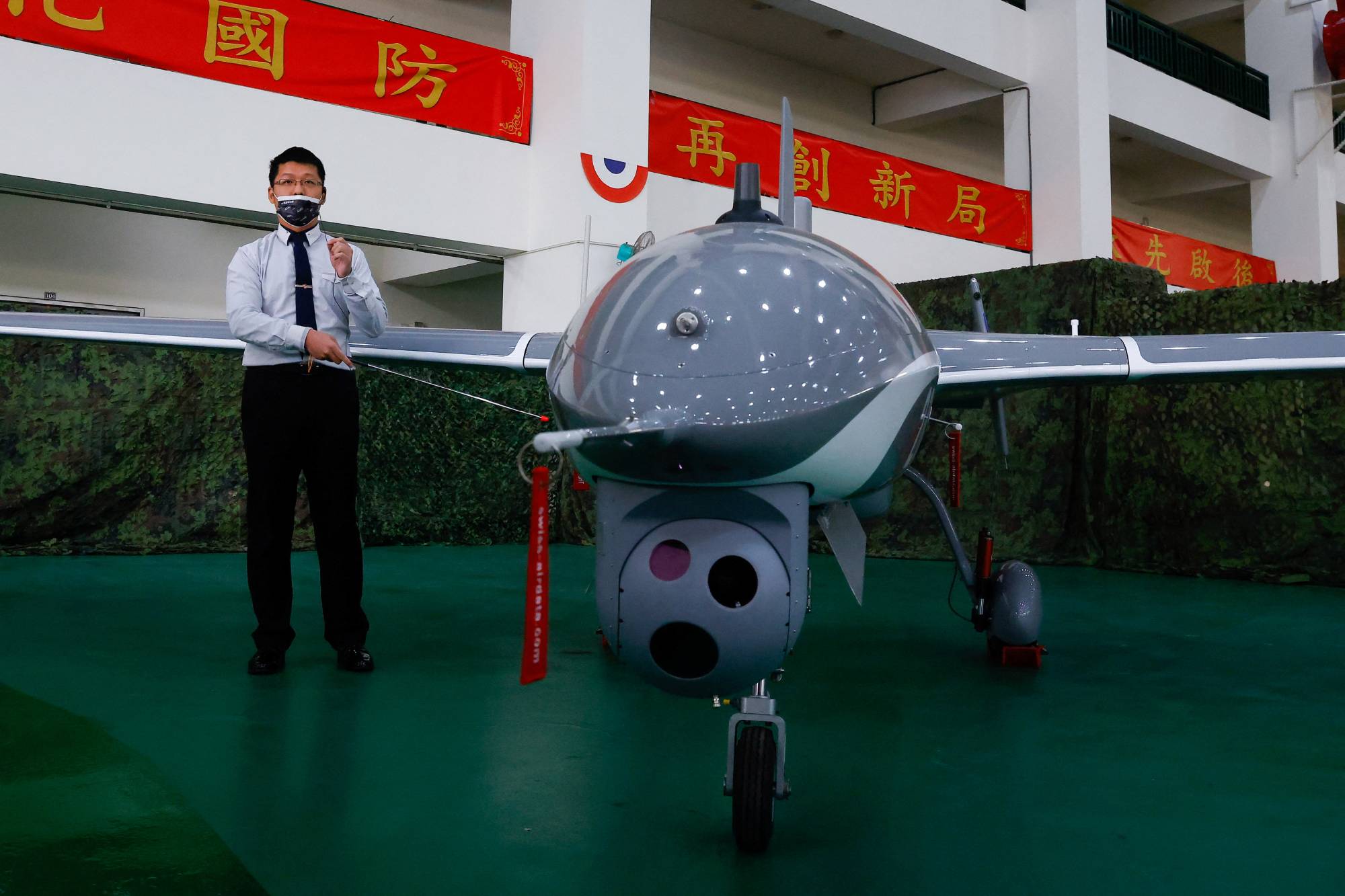As Taiwan President Tsai Ing-wen prepares to meet U.S. House Speaker Kevin McCarthy this week, the head of the U.S.-Taiwan Business Council has criticized Washington for not doing enough to meet the self-ruled island’s security needs, putting Taipei in a “quandary” over the type of weapons required for its defense.
“U.S. war fighters, government officials and members of Congress on both sides of the political spectrum have all expressed a sense of urgency about China’s intentions toward Taiwan,” Rupert Hammond-Chambers said in a recent interview.
“But that urgency is not bridging the gap into an all-of-government response,” he said, criticizing the White House for failing to ensure that the most significant Taiwan-related military aid provisions in the 2023 National Defense Authorization Act (NDAA) are “appropriately funded.”
Rhetoric and funding disconnect
The council president was referring to the Consolidated Appropriations Act — signed into law last December — which gives loans, but not grants, to Taipei to buy weapons. More specifically, the act allows up to $2 billion in direct loans, along with the same amount in loan guarantees, to Taiwan under the Foreign Military Financing Program — money that Taipei would need to pay off within 12 years.
However, it does not include funding for critical security assistance provisions that had been incorporated in the NDAA from the Taiwan Policy Act, a bill that has now been shelved indefinitely by Congress for a number of reasons, including White House concerns about unnecessarily provoking China.
The shelved bill had included $10 billion worth of grants — funded by U.S. taxpayers — over the next five years for Taiwan to buy U.S.-made weapons.
“There is a clear gap between the foreign policy priorities of the U.S. Foreign Relations and Armed Services committees and the appropriators who hand out the money,” Hammond-Chambers said. “They do not share the same sense of urgency and feel that a wealthy country like Taiwan can pay for its own defense.
“Despite Taipei already explaining to Washington that it does not have the legal framework in place to borrow money under such a mechanism, grant money, similar to what has been offered to Ukraine and Israel, has not been forthcoming,” Hammond-Chambers said.

While Washington’s ongoing support for Ukraine may have affected the funding decision, Hammond-Chambers suggested American domestic politics are also at play, as some lawmakers refuse to fund Taiwan’s defense with U.S. taxpayer money, despite their energetic rhetoric supporting the island.
In this regard, he claimed Washington’s loan offer is just an effort to “telegraph support with an understanding that Taiwan isn’t in a position to execute on the loans.”
This is a “cost-free way of deflecting criticism that they aren’t doing anything without actually putting any dollars to work.”
But this has left Taiwan in a bind.
“Taipei did not ask for Washington to head down this road, and the outcome means that it faces a Catch-22 situation,” he said. “Taiwan cannot execute on the security assistance as provided in loan form, and yet is likely to come under criticism as 2023 unfolds if it does not capitalize on the U.S. support.”
Beyond asymmetric warfare
The council president also criticized what he described as “the narrowness of U.S. security assistance focused solely on a so-called asymmetric approach.”
This comes after media reports emerged last year that the administration of U.S. President Joe Biden had rebuffed some of Taiwan’s requests for big-ticket weapons.
Instead, it has been urging Taipei to buy other equipment Washington believes will better deter and defend against China such as smaller, mobile systems, including drones, Stinger anti-aircraft missiles and Javelin anti-tank missiles.

Given that Taiwan cannot compete in numbers with China’s much larger military, Taipei has been ordering asymmetric assets from the U.S. as well as developing its own to bolster defense-industrial self-reliance.
Proponents of the asymmetric warfare approach argue that Taiwan only needs small numbers of these big-ticket items such as F-16V fighter aircraft, MH-60R Seahawk helicopters and Abrams tanks.
They argue that the F-16s might face difficulties taking off and landing in the event of Chinese strikes on airfields and runways. They also question whether the heavy Abrams tanks are suited for Taiwan’s mountainous and urban environment, where roads are narrow and may not be able to handle the heavy vehicles.
At the same time, the island is still keen on acquiring large platforms, mainly to ensure Taiwan can respond to different contingencies. Taipei also wants to bolster its capabilities to strike Chinese territory using long-range missiles to disrupt an attack.
However, Taiwanese officials have expressed frustration about delays in the delivery of U.S.-made weapons as the Ukraine war puts pressure on American production lines.
In the meantime, others continue to urge Washington to allow Taiwan to decide what it needs for its own defense, including the possibility of allowing the island to license-build assorted U.S. weapons systems following a technology transfer.
“Taiwan has serious concerns over the narrow and limited asymmetric approach to defense that is currently being imposed,” Hammond-Chambers said, noting that the threat posed by China extends beyond a full-scale invasion, as Beijing could launch a blockade or other aggressive acts that fall short of an armed attack.
“Washington wants Taiwan to buy munitions that fit addressing the D-Day style scenario, but this ignores other contingencies as well as other defense needs,” he said.
“They should be listening to Taiwan, not just directing it to do as it’s told.“
The council president criticized the Biden administration’s policies as being too restrictive and denying Taiwan the ability to modernize critical areas of its forces. This approach, he added, has put the Taiwanese government in a quandary as Taipei looks to maintain strong and positive relations with the U.S., its principal security guarantor.
“I am concerned that U.S. security assistance is creating new issues that will have to be dealt with in the coming years,” he said, warning that China will simply adjust its approach.
“As time progresses, that denial will result in new vulnerabilities that China will prey upon.”
Source : JapanTimes







